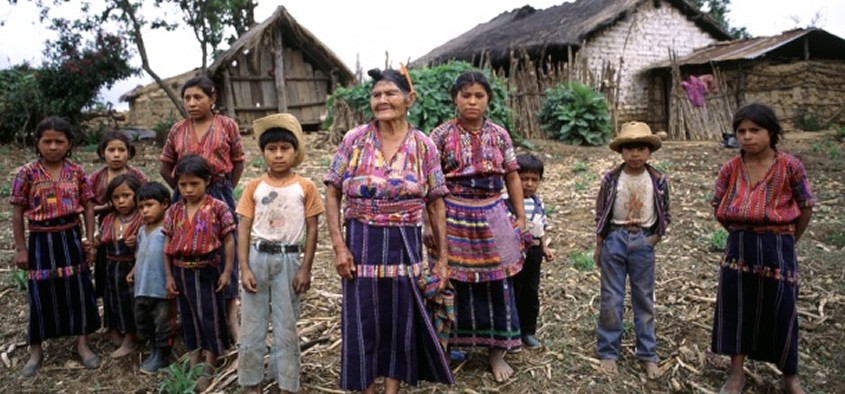
In 2016, GAFFI set up a demonstration site in Guatemala, with a focus on lethal infections in AIDS, notably histoplasmosis, cryptococcosis and TB. Coordinated from Guatemala City under the direction of Dr Eduardo Arathoon the program is in association with the NGO Asociacion de Salud Integral.
At least 280,000 Guatemalans suffer from a serious fungal infection each year of which an estimated 4,790 are immediately life-threatening. In 2015, care of newly presenting and hospitalised people with HIV relied mostly on clinical judgement with little diagnostic testing, throughout Guatemala. Histoplasmosis is hyperendemic in Guatemala (exposure in the general population 57%) and lethal in AIDS, but only one clinic in the capital was testing with the most sensitive assay (urinary antigen), and on a sporadic basis. Over 45% of new HIV diagnoses were made late, with advanced immune suppression. In 2016, deaths from AIDS were 1,600 among an estimated 46,000 infected people, with only 19% coverage of antiretroviral therapy.
The programme consisted of improved diagnosis and patient care via several coordinated actions:
- Enhanced ‘free’ diagnostics for 13 of 16 HIV units in Guatemala (60% of the nation’s patients with HIV) for TB (smear, culture, PCR), histoplasmosis (urine antigen, PCR, culture, PCR) and cryptococcosis (antigen, culture).
- Rapid sample transport system
- Internet ordering and results delivery between each centre and the Diagnostic Laboratory Hub at ASI
- Extensive online and in-person training of clinicians and laboratory staff.
A screening approach was taken for all HIV patients, regardless of CD4 count for TB, histoplasmosis and cryptococcosis.
From 2017-2019, there were 2,127 newly diagnosed HIV patients assessed and 21% had one or more of these 3 life-threatening infections. Histoplasmosis was the most frequent infection (7.9%), followed by TB (7.1%); 94.4% of these infections occurred in patients with a CD4 < 350 cells/mm3. Dual or triple infections were seen in 8.1%. Overall mortality decreased from 34% to 27% (a 26% fall), 54% dying within the first month. The number of TB diagnoses went down and survival increased by 16.1% in only one year (an 87% fall), indicative of misdiagnosis of TB early in the program. Histoplasmosis diagnoses rose 7.8-fold. Histoplasmosis mortality fell from 32.8% in 2017 to 21.2% (a 55% fall) in 2019. Overall, 6366 patients were enrolled, and 7.4% had histoplasmosis, with an increase from 2017-2019 from 6.5% to 8.8%, with improved screening coverage.
The success of the program is such that it has been adopted by the Ministry of Public Health and Social Assistance and expanded. Guatemala now has the first Diagnostic Laboratory Hub specialized in mycology providing diagnostic services to HIV patients in Central America. In the future, these diagnostic services could be extended to other vulnerable groups and the general population (i.e. cancer and post-tuberculosis patients).
Narda Medina and colleagues use their experience in Guatemala to show how an active role of laboratories can improve patients’ survival, principally using non-culture-based assays which improve accuracy and turnaround time. Diagnostic packages for opportunistic infections can overcome many deficiencies caused by the absence of awareness. Medina Diagnostic mycology labs J Fungi 2022
Programme outputs include:
Samayoa B, et al The Diagnostic Laboratory Hub, a new Healthcare system reveals the incidence and Mortality of Tuberculosis, Histoplasmosis and Cryptococcosis of PLHIV in Guatemala. Open Forum Infect Dis 2019;7(1):ofz534. The Diagnostic Laboratory Hub: A new healthcare system to reduce fungal disease mortality in Guatemala Press release
Medina N, et al. Comparative performance of the laboratory techniques used in a diagnostic laboratory hub to diagnose opportunistic infections in people with HIV in Guatemala. AIDS 2020 34:1625–1632. Press release
Medina N, et al. A Rapid Screening Program for Histoplasmosis, Tuberculosis, and Cryptococcosis Reduces Mortality in HIV Patients from Guatemala. J Fungi 2021;7:268. Press release
Medina N, et al. Impact of the COVID-19 pandemic on HIV care in Guatemala. Int J Infect Dis 2021;108:422-427. Press release
Medina N, et al,. Incidence of histoplasmosis in a cohort of people with HIV: from estimations to reality Microorganisms 2020;9:2596. Press release
View grant submitted to JYLAG Foundation in 2015: “Minimising HIV deaths through rapid fungal diagnosis and better care in Guatemala”
View a video on GAFFI’s Guatemala programme on diagnosing fungal infections in AIDS
View the March 2018 press release on GAFFI’s Guatemala programme
View video ‘Saving lives of people with HIV using diagnostics in Guatemala’ (Spanish)
[embedyt] https://www.youtube.com/watch?v=cRRy2Vka0jY[/embedyt]